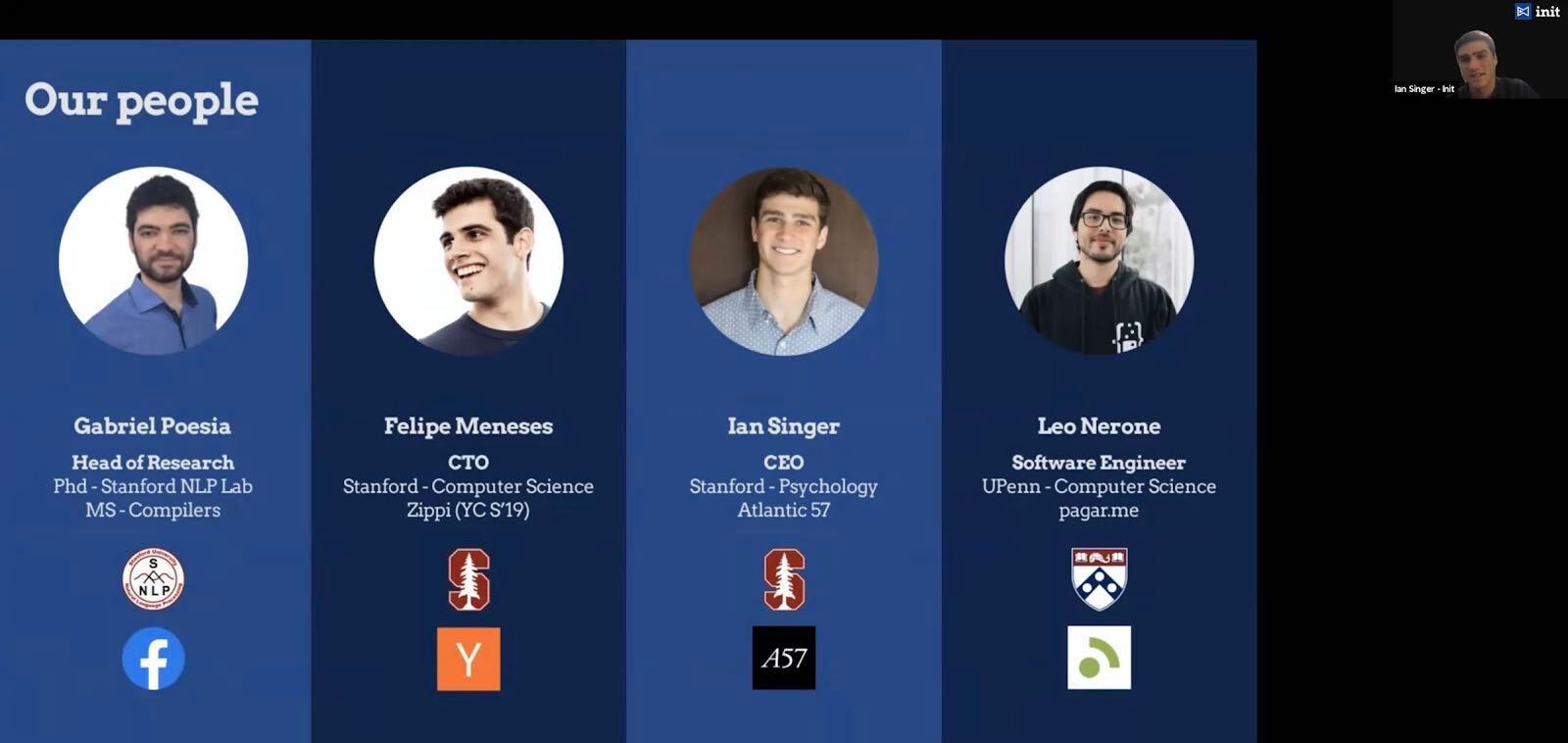Thirteen teams of Stanford students pitched startups to investors at Cardinal Ventures’ Demo Day to receive investment funding on Thursday.
Cardinal Ventures, a program that helps students “succeed on their entrepreneurial journeys,” is the only startup accelerator run exclusively by and for Stanford students.
The event was an opportunity for the teams, who were concluding 10 weeks preparing business models as part of the Cardinal Ventures program, to convince investors like Google Ventures, Hyundai Ventures and Goldcrest Capital to invest in their business. Teams first pitched their business models before holding private meetings with interested investors.
It is currently not clear whether these startups have secured the funding they need to proceed with the next stage of company development.
The 2020 cohort presented diverse business models in different stages of development. Management companies like SiteTrace elucidated their contract-based strategies, while Ohwow!, a media file sharing platform, shared their proposal to generate commercial sales. Some companies boasted active consumers while others were looking for their first investors to start developing prototypes. But from creating a battery with a flexible polymer (Anthro Energy) to streamlining the legal process for immigrants seeking asylum in the United States (Formally), all of the teams pitched ideas that they said would put them at the forefront of their respective industries.
The businesses competed for anywhere from $200,000 to $1.5 million, which they said would allow them to enter the next stage of their business’s development.
Asked about his plan for using the $1.5 million he and his team requested, CEO of startup Radical Semiconductor Sean Hackett ’21 said, “We plan to make a prototype and pen test it [a process which consists of attacking a computer system to check for exploitable vulnerabilities] to make sure that it does what we say it’s going to do.”
Radical Semiconductor’s low-power, embedded chips aim to prevent hacking or reverse-engineering: “Even if you had all the resources at your disposal, there’s no way to probe our analog chip to extract any meaningful information,” according to Hackett. Anthro Energy presented a flexible lithium-ion battery — an invention they said would transform wearable electronics such as wrist-worn devices.
As the pitch portion of the event came to a close, investors could choose to speak directly to teams in breakout rooms. For companies, the meetings were make or break — but the students had spent weeks preparing for the event by attending workshops where they revised business models, received advice from entrepreneurial mentors and engaged with a network of worldwide founders.
CEO of Formally, a startup in the scaling stage, Amelie-Sophie Vavrovsky ’21 told The Daily that the opportunity to network was especially useful.
“I think it was really helpful to connect with some founders that were similar and in the later stages already,” Vavrovsky said.
As these startups continue to pursue their business models, they will join Cardinal Ventures’ group of 90 alumni enterprises, which have collectively raised over $359 million in investments within five years, according to Vice President of Marketing at Cardinal Ventures Grant Gordon ’22.
Already, this round’s teams have grown “tremendously” over the course of the 10 weeks, Gordon said.
“They’ve shipped products, signed customers, and met dozens of investors going into Demo Day,” Gordon said. “We’re beyond excited for their hard work to pay off, and we can’t wait to see them join our other rockstar alumni!”
This article has been updated to clarify that several investors from multiple firms attended the event.
Contact David Han at davidhan4310 ‘at’ gmail.com.
